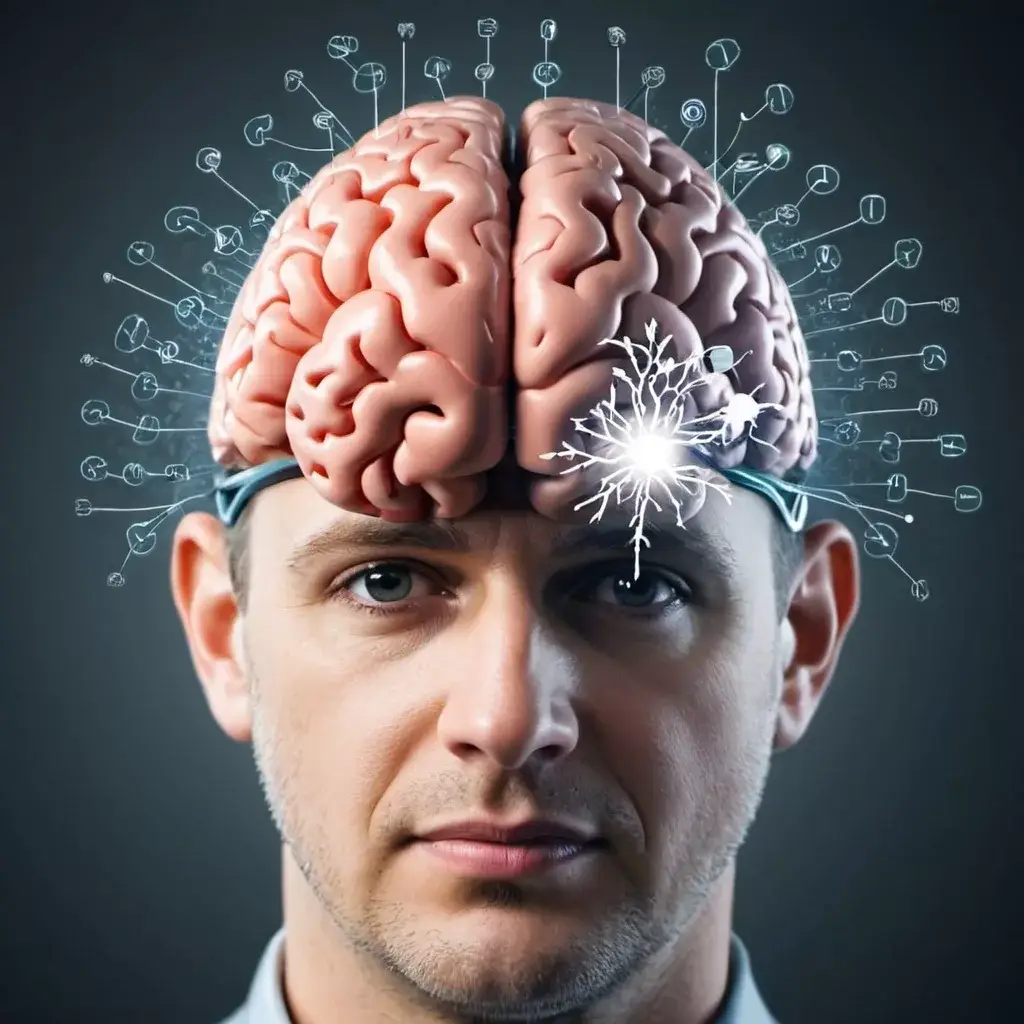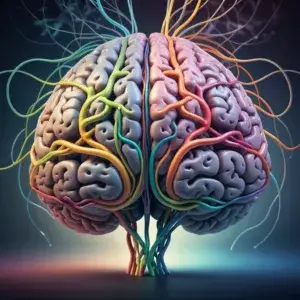Table of Contents
Brain Games and Cognitive Function
In my exploration of cognitive enhancement strategies, it’s clear that brain games have taken center stage in the conversation about memory improvement. The foundation of this discussion is rooted in scientific research that indicates engaging activities such as puzzles and problem-solving exercises can have a positive impact on cognitive function.
Memory isn’t a single, monolithic entity. It’s useful to understand the various kinds:
- working memory lets us hold information temporarily for processing,
- long-term memory is our vast store of knowledge and experiences, and
- sensory memory is that immediate, often unconsciously held information we get from our senses.
- Each type can be sharpened with specific brain games designed for this purpose.
Adopting brain games as a part of a regular routine is less about occasional entertainment and more about consistent mental maintenance. Much like physical exercise for the body, these mental workouts can bolster memory retention and enhance the ability to process and recall information. Considering this, let’s move on to some specific games that can help improve memory.
Best Brain Games for Memory Boosting: A Curated Selection
Identifying the right brain games to enhance memory is key. While there’s no one-size-fits-all solution, I’ll guide you through some of the most effective games known for memory improvement.
Let’s start with the classics. Crosswords challenge your recall of vocabulary and general knowledge, activating brain regions responsible for memory. Similarly, the game Sudoku primes your problem-solving skills and working memory as you keep track of numbers and patterns.
Jigsaw puzzles are not just child’s play; they are a fantastic way to sharpen short-term memory. They require you to remember specific shapes and colors, demanding attention and concentration which are critical components of memory processes.
The past decade has ushered in a digital revolution in brain training. I’ll tell you about some noteworthy apps. Lumosity, for instance, offers a wide range of personalized brain games that target various cognitive skills including memory. CogniFit is another platform that adapts its difficulty level based on your performance, ensuring your cognitive abilities are constantly challenged.
If you’re more of a social butterfly, card games like Bridge or poker, and strategic games like chess, can also be excellent for your memory. Engaging with others while playing stimulates interaction and cognitive strategies, driving memory function.
When incorporating these games into your routine, think BALANCE. Your brain thrives on variety. A mix of different types of challenges can lead to better overall improvements in memory functions.
Scientific Insight: Understanding How Brain Games Influence Your Neural Pathways
The concept of neuroplasticity is central to understanding how brain games can potentially affect your cognitive functions. Neuroplasticity refers to the brain’s remarkable ability to reorganize itself by forming new neural connections throughout life. This adaptability ensures that learning and memory can occur even as we age.
When you engage in brain games, you’re not just passing time; you’re essentially working out your brain muscles. Regular mental stimulation through puzzles and strategy games can promote the creation of new synapses, the junctions through which neurons communicate. This could lead to improved cognitive abilities, including better memory.
Several studies have put the effectiveness of brain games under the microscope. For example, a study published in the Journal of the American Geriatrics Society researched the impact of brain training on cognitive functions in older adults. The findings suggested that some types of training could lead to improvements in memory tasks, although the results vary.
However, it’s important to approach these studies with a critical eye. The scientific community continues to debate the extent and breadth of the effectiveness of brain games. While some research points to positive outcomes, other studies find little to no change in cognitive abilities.
Despite this ongoing debate, integrating mentally challenging activities into your routine is unlikely to be harmful. In fact, it could potentially serve as a proactive step towards maintaining and enhancing brain health. Yet, it’s equally crucial to set realistic expectations about the benefits you may experience.
Developing a Balanced Brain Training Regimen: Strategies and Tips
Creating a brain training routine doesn’t need to feel like a chore. By incorporating a medley of engaging games, you can seamlessly blend mental exercise into your daily life. Commit to playing different types of games that challenge various aspects of memory and cognition. Aim for a mix of puzzles, problem-solving exercises, and games that require strategy and planning.
Consistency is key when it comes to brain training. Establish a regular schedule for playing brain games, but remember, moderation is also important. Overworking your brain can lead to burnout, just like overdoing any other physical activity.
A holistic approach to memory improvement is crucial. Proper nutrition, physical exercise, and adequate sleep are vital components that work hand in hand with mental exercises to enhance memory functions. Make sure to give equal attention to these areas for the best results.
Track your progress with the games you play, but do so with a grain of salt. Improvements may be gradual and not immediately evident. It’s the long-term commitment and cumulative effect of brain training that holds the most potential for memory improvement.
Lastly, set realistic goals and stay patient. Progress in memory enhancement doesn’t happen overnight. Celebrate the small victories along your journey – each puzzle solved and level advanced is a step forward in your cognitive health.
Resources
- “Cognitive Benefits of Brain Games: A Review”
Journal of Neuropsychology, 2020
Link - “The Science Behind Brain Games: Enhancing Cognitive Abilities”
Frontiers in Human Neuroscience, 2018
Link - “Top Brain Games to Keep Your Mind Sharp”
Psychology Today
Link - “Do Brain Games Really Work? A Critical Review”
Harvard Health Blog
Link - “How Brain Games Can Improve Mental Agility”
Scientific American
Link








I enjoy brain games because they stimulate my memory were well! I feel that there’s some difference when I use them vs. when I’m not. When I started noticing that I was tired and not fit on my memory that was quite good, I started using them. And I’m very happy. What’s your favorite brain game by the way? How many times per week do you play them?
Hey there thanks for stopping by. I use a variety of brain training games but mostly I use Lumosity. I try to do some just about every day so that it is a part of my normal routine.